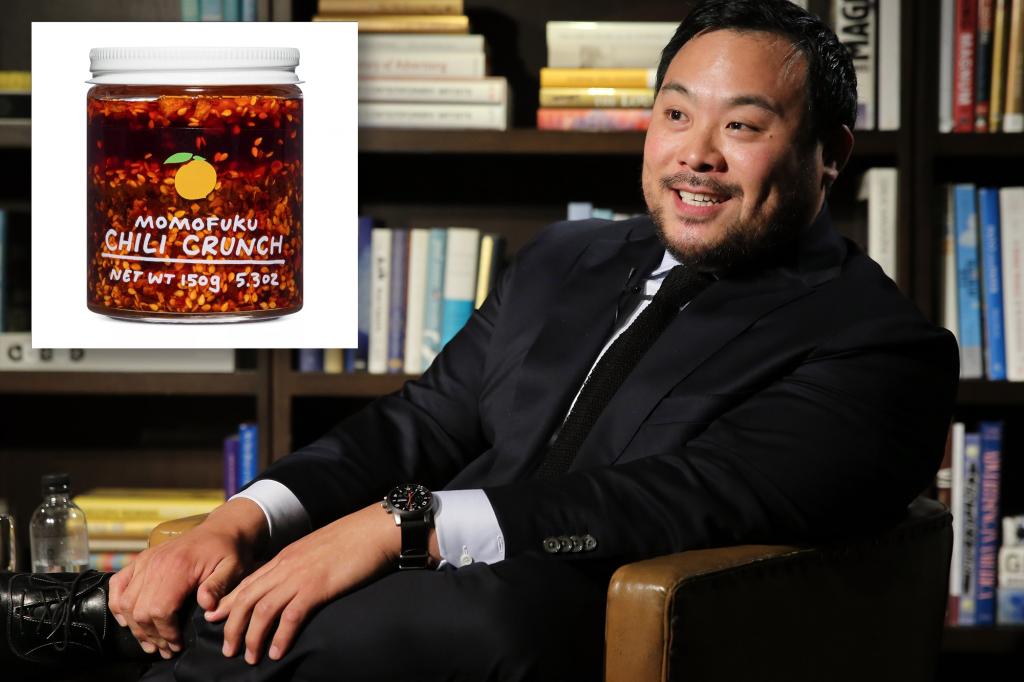Celebrity chef David Chang recently announced that his company, Momofuku, will no longer pursue the trademark for its “Chili Crunch” product after facing backlash from the Asian American and Pacific Islander communities. This decision came after Momofuku sent cease-and-desist letters to several small businesses, mostly founded by Asian Americans, that were using the terms “Chili Crunch” and “Chile Crunch” for their products. Chang issued an apology, acknowledging the hurt and feelings of marginalization that the AAPI community experienced as a result of their actions.
Momofuku, known for its pantry items, including a spicy oil called “Chili Crunch,” began going after businesses that sold a similar product. Chang admitted that the company chose the name “Chili Crunch” as a way to differentiate it from the well-known “Chili Crisp” by Lao Gan Ma. However, he claimed ignorance in realizing that “Chili Crunch” was a generic term widely used for this type of condiment. Chang expressed regret for causing any offense and emphasized his commitment to promoting Asian food and identity.
The trademark dispute arose when Momofuku sought to claim both “Chile Crunch” and “Chili Crunch” as its intellectual property. Chang explained that they initially trademarked “Chile Crunch” after purchasing it from Chile Colonial and were in the process of doing the same for “Chili Crunch.” However, they later decided to relinquish the pursuit of the trademark for “Chili Crunch,” acknowledging that naming it as such was a mistake due to its common usage in the Asian culinary world.
Despite facing criticism and being labeled a “bully” by some individuals, Chang and the Momofuku team decided to step back from the trademark dispute by not pursuing further action. Mariscal, the company’s CEO, outlined the potential risks of not defending trademarks but expressed their intention to take a different approach moving forward. The decision to back down from the trademark fight was seen as a way to deescalate the situation and address concerns raised by the AAPI community and others affected by the dispute.
Small business owners, such as Michelle Tew of Homiah in New York, shared their experiences of receiving cease-and-desist letters from Momofuku. Tew, who sells Malaysian food products including a Sambal Chili Crunch based on a family recipe, described the situation as a “punch in the gut.” Other businesses, like Yun Hai Taiwanese Pantry, criticized the attempt to trademark names like “Chili Crunch,” likening it to trying to own common terms like “barbecue sauce” or “mustard.” The situation highlighted the challenges faced by small food businesses in navigating trademark disputes with larger corporations.
In conclusion, the controversy surrounding Momofuku’s trademark dispute over “Chili Crunch” shed light on issues related to cultural appropriation, intellectual property rights, and corporate responsibility. David Chang’s apology and the company’s decision to halt the trademark pursuit signaled a willingness to listen to the concerns of the AAPI community and reflect on their actions. Moving forward, the incident serves as a reminder of the importance of cultural sensitivity and ethical business practices in the food industry and beyond.


